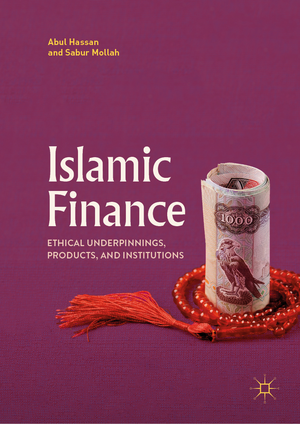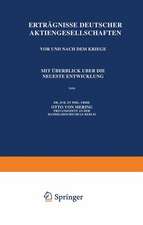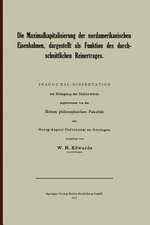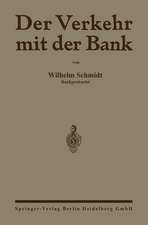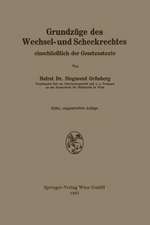Islamic Finance: Ethical Underpinnings, Products, and Institutions
Autor Abul Hassan, Sabur Mollahen Limba Engleză Hardback – 20 iul 2018
| Toate formatele și edițiile | Preț | Express |
|---|---|---|
| Paperback (1) | 781.00 lei 6-8 săpt. | |
| Springer International Publishing – 30 ian 2019 | 781.00 lei 6-8 săpt. | |
| Hardback (1) | 791.40 lei 6-8 săpt. | |
| Springer International Publishing – 20 iul 2018 | 791.40 lei 6-8 săpt. |
Preț: 791.40 lei
Preț vechi: 965.12 lei
-18% Nou
Puncte Express: 1187
Preț estimativ în valută:
151.44€ • 158.51$ • 126.04£
151.44€ • 158.51$ • 126.04£
Carte tipărită la comandă
Livrare economică 31 martie-14 aprilie
Preluare comenzi: 021 569.72.76
Specificații
ISBN-13: 9783319912943
ISBN-10: 3319912941
Pagini: 321
Ilustrații: XXIV, 322 p. 25 illus., 19 illus. in color.
Dimensiuni: 148 x 210 mm
Greutate: 0.71 kg
Ediția:1st ed. 2018
Editura: Springer International Publishing
Colecția Palgrave Macmillan
Locul publicării:Cham, Switzerland
ISBN-10: 3319912941
Pagini: 321
Ilustrații: XXIV, 322 p. 25 illus., 19 illus. in color.
Dimensiuni: 148 x 210 mm
Greutate: 0.71 kg
Ediția:1st ed. 2018
Editura: Springer International Publishing
Colecția Palgrave Macmillan
Locul publicării:Cham, Switzerland
Cuprins
Part I.- Islamic financial markets, its Ethical Foundation, Portfolio Performance, Customer Loyality and Products.- Chapter 1. The Ethical Underpinnings of Islamic Economics and Finance.- Chapter 2. Islamic Finance : A Global Alternative.- Chapter 3. Justice, Balance, Trust and Benevolence: The Relationship of the Islamic Bank to Its Shareholders.- Chapter 4. Following the Rules: How do Islamic and Ethical Investing Impact Portfolio Performance?.- Chapter 5. A New Perspective: Islamic Business Ethics and Islamic Finance Customer Loyalty.- Chapter 6. Unprecedented Opportunity: The Global Credit Crisis and Islamic Banking.- Chapter 7. Shariah Compliant Equity.- Chapter 8. Sukuk – Shariah Based Asset Securitization.- Chapter 9. Islamic Mutual Funds: A Vehicle for Mobilization of Small Savings.- Chapter 10. Joining Forces: Islamic Finance and Private Equity.- Chapter 11. Financial Futures,Stock Options and Warrants in the Islamic Capital Market.- Chapter 12. Small Solutions: Poverty Alleviation Through Islamic Microfinance.- Chapter 13. Home Sweet Home: Islamic Housing Financing.- Chapter 14. Operational Mechanism of Takaful and Re-Takaful.- Part II.- Regulation, Risk Management, CSR of Islamic Financial Services, Accounting, Governance, and their International Islamic Infrastructure Institutions.- Chapter 15. Courting Change: Development of Islamic Legal System Could Bring Growth.- Chapter 16 Gaining Strength: Prudential Regulations in Islamic Banking.- Chapter 17. Risk Management in Islamic Financial Institutions.- Chapter 18. The Basel Accords in Relation to Islamic Finance.- Chapter 19. CSR Disclosure for Islamic Financial Institutions.- Chapter 20. Just and Balanced: The Importance of Accounting in Islamic Finance.- Chapter 21. Bigger Than the Bottom Line: Islamic Principles of Accounting.- Chapter 22. Rich Architecture: Briefing on Shariah-Compliant Corporate Governance.- Chapter 23. International Islamic Financial Infrastructure Institution: AAOIFI.- Chapter 24. International Islamic Financial Infrastructure Institution: IFSB.- Chapter 25. International Islamic Financial Infrastructure Institution: IIRA.- Chapter 26. International Islamic Financial Infrastructure Institution: IILM.
Notă biografică
Abul Hassan is a Research Scientist and Associate Professor at the Centre of Islamic Banking and Finance, King Fahad University of Petroleum and Minerals. Hassan earned his MSc in Financial Economics and PhD in Finance from the Durham University Business School. He has taught at Durham University, Staffordshire University, University of Brunei Darussalam, and Gloucestershire University (Markfield Institute). Hassan has published extensively in international peer review journals. Currently, he is conducting research in the area of Islamic banking and finance.
Sabur Mollah is a Professor of Accounting and Finance at the School of Management, Swansea University. He obtained his BCOM (Honours) and MCOM (Finance) from University of Dhaka, PhD in Corporate Finance from Leeds University Business School, and Docent in Business Administration (specialization in Corporate Finance) from Stockholm Business School. Mollah taught previously at Bournemouth University, University of Botswana, University of Dhaka, Hull University Business School, Leeds University Business School, and Stockholm Business School. He has published extensively on issues surrounding market reactions to dividend policy, asset pricing behaviour, market efficiency and volatility, corporate governance in banks, Shari’ah governance, and earnings management. His research has appeared in the Journal of Accounting and Economics, Journal of Corporate Finance, and Journal of Banking and Finance, etc. Mollah has also received several medium-size external grants.
Sabur Mollah is a Professor of Accounting and Finance at the School of Management, Swansea University. He obtained his BCOM (Honours) and MCOM (Finance) from University of Dhaka, PhD in Corporate Finance from Leeds University Business School, and Docent in Business Administration (specialization in Corporate Finance) from Stockholm Business School. Mollah taught previously at Bournemouth University, University of Botswana, University of Dhaka, Hull University Business School, Leeds University Business School, and Stockholm Business School. He has published extensively on issues surrounding market reactions to dividend policy, asset pricing behaviour, market efficiency and volatility, corporate governance in banks, Shari’ah governance, and earnings management. His research has appeared in the Journal of Accounting and Economics, Journal of Corporate Finance, and Journal of Banking and Finance, etc. Mollah has also received several medium-size external grants.
Textul de pe ultima copertă
Islamic finance often faces numerous challenges in a dynamic marketplace. This book aims to discuss contemporary issues and challenges in Islamic finance to inform discussions surrounding the governance system, the Islamic legal system, prudential regulations, Islamic home financing, and Islamic microfinance. Furthermore, corporate social responsibility (CSR), Islamic accounting, risk management, Basel Accord, and Shari'ah governance systems are discussed in the book. Despite the relevance of these issues in Islamic finance, only a few reference sources exist. This book will provide a guide for academics, students, and banking professionals to acquaint them with the theory and practice of Islamic finance, filling a needed gap.
Caracteristici
Discusses contemporary issues and challenges in Islamic finance Underpins informed discussions on key topics such as the Islamic legal system, prudential regulations, Islamic home financing, and Islamic micro finance Showcases theoretical and practical topic areas such as corporate social responsibility, risk management, Basel, and Shariah governance
